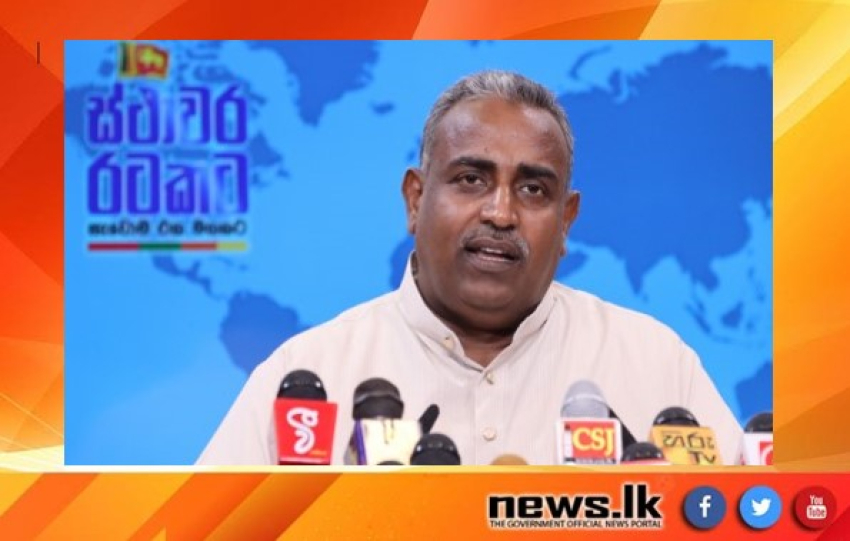Member of Parliament Mr. Upul Rajapaksha, Chairman of the Sectoral Monitoring Committee on Religious Affairs and Co-Existence, said that the government has planned a program to raise religious education to create a generation of spiritualized children.
Mr. Rajapaksha also said that it has been proposed to include religious education in a new education system based on all religions.
The Chairman of the Sectorial Monitoring Committee on Religious Affairs and Co-Existence, Mr. Upul Rajapaksha, conveyed these updates during a press conference held yesterday (31) at the Presidential Media Center under the theme ‘Collective Path to a Stable Country.'
Mr. Upul Rajapaksha further said;
After the end of the war, which lasted for three decades, a significant amount of work has been carried out by various governments to promote reconciliation. However, following the Easter attacks, different ideologies began to emerge among the people. This is precisely why reconciliation should be prioritized to prevent the country from experiencing religious or racial conflict once again. The Sectoral Monitoring Committee on Religious Affairs and Co-Existence bears a significant responsibility in this regard.
We have been actively working to put forth proposals for national reconciliation. As a result of our committee's suggestions, we successfully organized the State Vesak Festival in the Puttalam district this year, which is known for its multiculturalism. Additionally, efforts should be focused on fostering harmony among the younger generation. To achieve this, children need to be guided towards shaping a morally virtuous society.
Both religious leaders and religious education hold a tremendous responsibility in cultivating a society where everyone identifies as citizens first, with religious education taking precedence. Our committee has recommended that Dhamma education be integrated into educational reforms.
Currently, around 2.2 million Buddhist children, 200,000 Christian children, 60,000 Islamic children and 200,000 Hindu children are receiving religious education. This trend is encouraging.
However, there's a suggestion to elevate this initiative to a higher level and enhance the quality of Dhamma education. Religious leaders should play a pivotal role as leaders of Dhamma schools.
Furthermore, a proposal has been made to incorporate Dhamma education into the school education system and introduce a priority marking system accordingly. These suggestions are anticipated to be implemented after considering expert opinions. Our goal is to foster reconciliation among Sri Lankans through these collective endeavours.
In addition, a plan has been put forward to transform national museums into revenue-generating establishments. Moreover, guidelines for ensuring the quality of Atapirikara manufacturing are also under consideration.



















